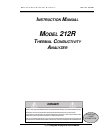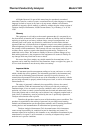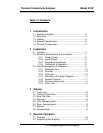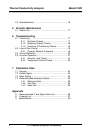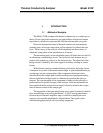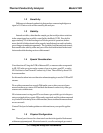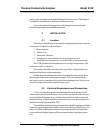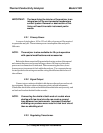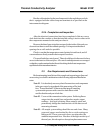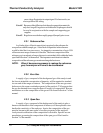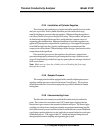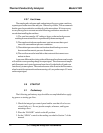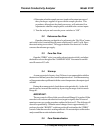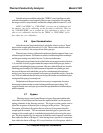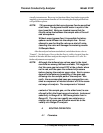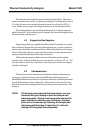
Teledyne Analytical Instruments
5
Thermal Conductivity Analyzer Model 212R
1. INTRODUCTION
1.1 Method of Analysis.
The Model 212R compares the thermal conductivity of a sample gas to
that of a fixed composition reference gas and produces an electrical output
signal that is calibrated to represent the difference between the two gases.
Due to the nonspecific nature of thermal conductivity measurement,
standard gases of known composition will be required to calibrate the ana-
lyzer. The accuracy of the analysis will be dependent on the accuracy to
which the composition of the standard gases is known.
The measuring unit is a four element hot wire cell that forms one-half of
an alternating current bridge circuit. Two of the hot wire elements are ex-
posed to the sample gas, and two to the reference gas. The other half of the
bridge circuit is formed by the center tapped secondary winding of a trans-
former.
With reference and zero standardization gas flowing, the bridge circuit
is balanced at one end of the measurement range. A span standardization gas
containing a known concentration of the component of interest is then
introduced into the sample path, and the resulting error signal generated by
the now unbalanced bridge circuit is calibrated to represent the span gas
mixture. The concentration of the component of interest in the span gas is
predicated by the specified ranges of the analysis. After the instrument has
been standardized the electrical error signal is directly related to the compo-
nent of interest content of the sample gas.
The magnitude of the measuring bridge error signal is much too small to
drive an indicating or recording instrument. A 100:1 step-up transformer,
followed by an electronic amplifier stage, is utilized to amplify the error
signal to an acceptable amplitude for demodulation. The signal is then
conditioned appropriately to drive recording equipment.



